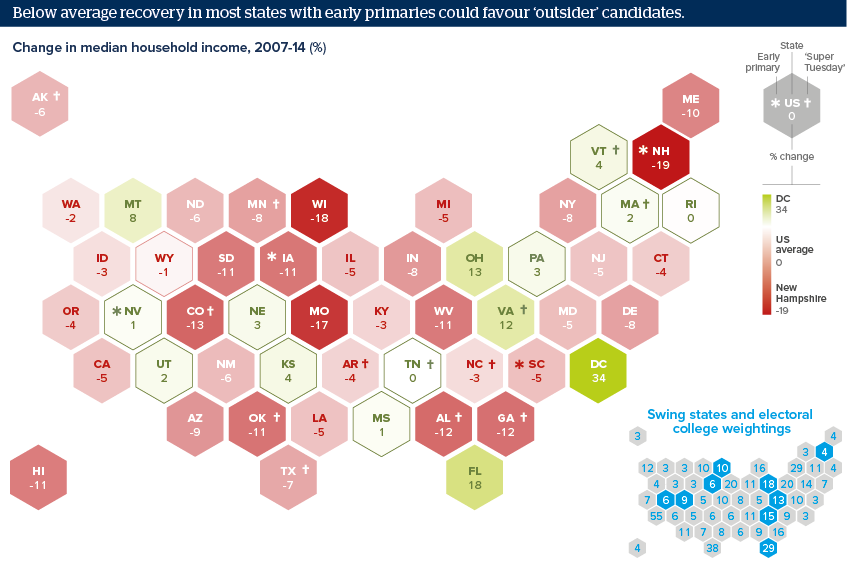Recovery of states could shape US 2016 elections
Swing states provide mixed picture of improvement in voters' incomes

Source: Gallup, US Census Bureau, US Dept. of Labor Statistics, Oxford Analytica
Outlook
US presidential campaigns are only nominally national. Nominations are heavily affected by the states voting earliest, and general elections under the US Electoral College system come down to a few closely divided 'swing' states.
Three of the nine swing states are among the four early primary states. Only two swing states, Colorado and Virginia, are part of the large ‘Super Tuesday’ bloc of primary contests scheduled for March 1, 2016.
The economy is frequently cited as the most important issue to voters, but the economic performance of states has varied since the 2007-09 recession. Those states with poorer economic records may be more likely to back 'outsider' candidates, reflecting popular anger against the more 'establishment' candidates.
Impacts
- A record 60% of citizens believe that both parties do not represent their interests, but a third-party candidate remains unlikely.
- Oil-producing states have experienced recession since 2014 -- but are politically uncompetitive.
- 'Super PAC' funding will sustain ideologue candidates beyond their expected campaign end-dates.